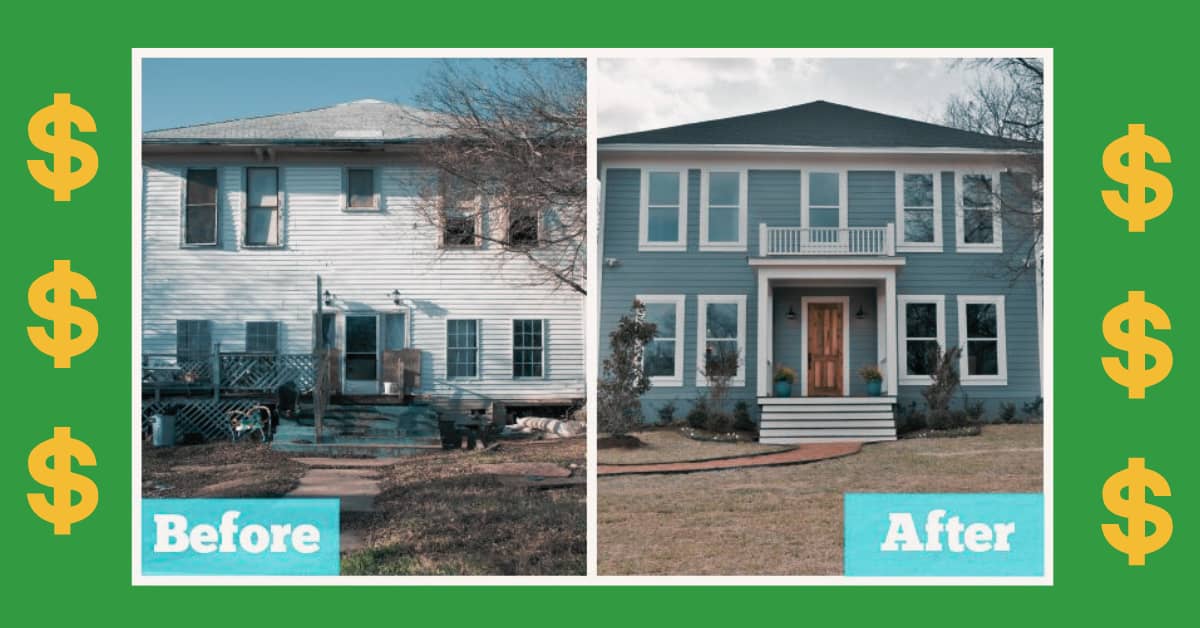Welcome to our comprehensive guide on investing in Orlando real estate! As seasoned real estate agents in Orlando, we understand that the decision to invest in the local market can be both exciting and challenging. One of the primary considerations you’ll face as an investor is whether to focus on rental properties or house flipping. In this blog post, we’ll dive into both options from a professional yet friendly perspective, helping you make an informed decision based on your goals and circumstances.
Rental Properties: Steady Income and Long-Term Wealth
Investing in rental properties has been a time-tested strategy for building long-term wealth. Orlando’s vibrant real estate market, fueled by a growing population and a thriving tourism industry, offers ample opportunities for successful rental property investments. Here are some key points to consider:
- Steady Income: Rental properties provide a consistent stream of income through monthly rent payments. This income can help cover your mortgage, property management costs, and other expenses, allowing you to build equity while your investment appreciates over time.
- Appreciation Potential: Historically, Orlando has experienced steady property value appreciation. As the local economy grows and demand for housing continues to rise, your rental property’s value could increase significantly over the years.
- Tax Benefits: Rental property investors can take advantage of various tax deductions, including mortgage interest, property taxes, insurance, and maintenance costs. Consult a tax professional to understand how these benefits apply to your situation.
- Hands-On or Hands-Off: You can choose to manage your rental property yourself or hire a property management company to handle day-to-day operations. This flexibility suits various levels of involvement based on your preferences.
- Long-Term Wealth: The combination of rental income, property appreciation, and potential tax benefits can lead to substantial long-term wealth accumulation. Rental properties can be a cornerstone of your investment portfolio.
Flipping Houses: Quick Profits with Strategic Planning
House flipping, on the other hand, involves purchasing properties at a lower price, renovating them, and selling them at a higher price in a relatively short period. While it can be more demanding and carry higher risks, it offers the allure of quick profits. Here’s why some investors are drawn to this strategy:
- Short-Term Gains: House flipping can yield substantial profits in a shorter time frame compared to rental properties. By identifying undervalued properties, making strategic renovations, and selling at a higher price, you can turn a quick profit.
- Realizing Potential: Flipping houses allows you to put your creative stamp on properties, turning neglected spaces into appealing homes. This can be immensely satisfying for those with a passion for design and renovation.
- Market Timing: Successful house flipping requires a keen understanding of the local real estate market. Being able to predict trends and anticipate demand is essential for maximizing profits.
- Higher Risks: Flipping houses can be riskier due to market fluctuations, unexpected renovation costs, and the potential for properties to remain unsold. Proper research, budgeting, and a solid exit strategy are critical.
- Capital and Expertise: Successful house flipping demands both financial resources and renovation expertise. If you lack these, partnerships or education can help bridge the gaps.
Choosing the Right Path: Factors to Consider
Deciding between rental properties and flipping houses depends on several factors, including your financial goals, risk tolerance, available capital, expertise, and time commitment. Consider the following tips to make an informed choice:
- Define Your Goals: Clarify your investment objectives. Are you seeking long-term wealth through rental income and appreciation, or do you want to generate quick profits through house flipping?
- Assess Risk Tolerance: Understand your comfort level with risk. Rental properties offer steady income while flipping houses involves more immediate financial risks.
- Evaluate Finances: Analyze your financial situation. Rental properties require a long-term financial commitment, while flipping houses may demand more upfront capital for renovations.
- Research the Market: Study the Orlando real estate market to identify trends, demand, and opportunities. This knowledge will inform your investment strategy.
- Consider Expertise: Be honest about your skills. If you’re experienced in renovations and property management, house flipping might be a natural fit. If not, rental properties could offer a more accessible entry point.
Conclusion
Investing in Orlando real estate is an exciting journey that presents opportunities for both steady income and quick profits. Rental properties offer the potential for long-term wealth accumulation while flipping houses can lead to rapid financial gains with strategic planning. By evaluating your goals, risk tolerance, finances, expertise, and the local market, you can make a well-informed decision that aligns with your aspirations. Remember, regardless of your chosen path, partnering with experienced real estate professionals can provide invaluable guidance and support throughout your investment journey. Happy investing!
If you’re ready to explore Orlando’s real estate opportunities further, don’t hesitate to reach out to us at Orlando Realty Consultants. We’re here to help you navigate the exciting world of real estate investment in our beautiful city!



